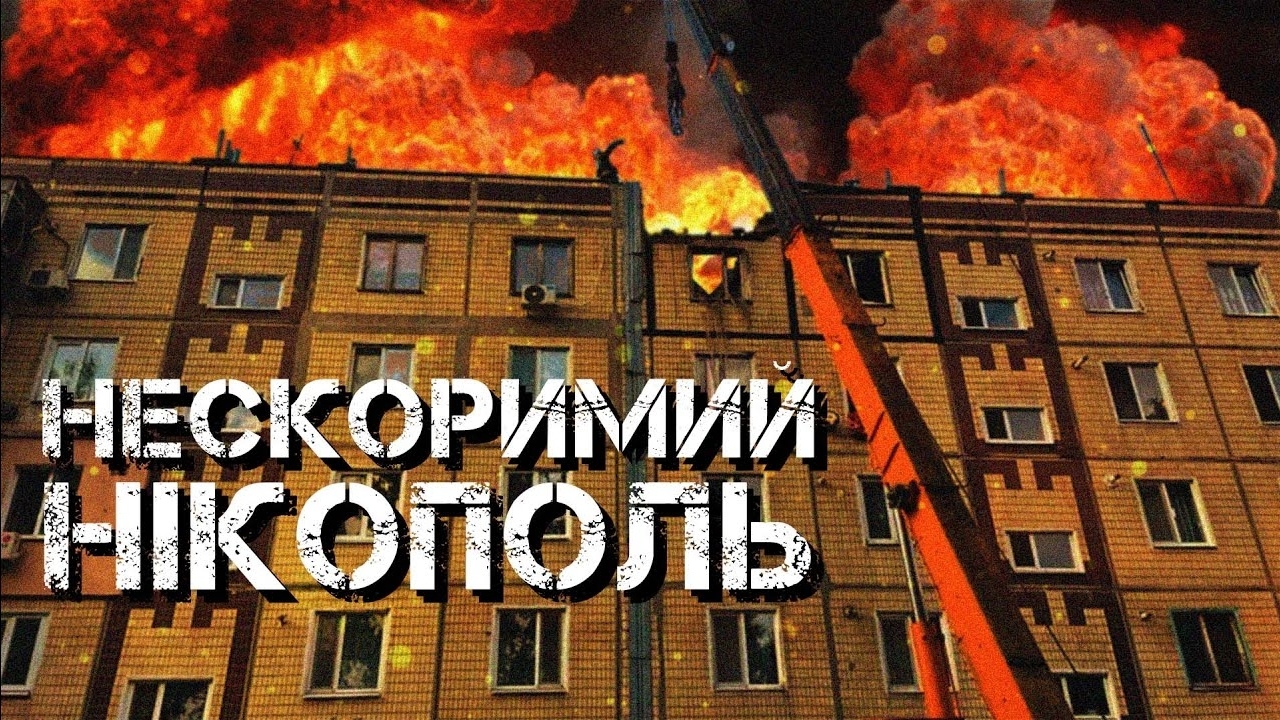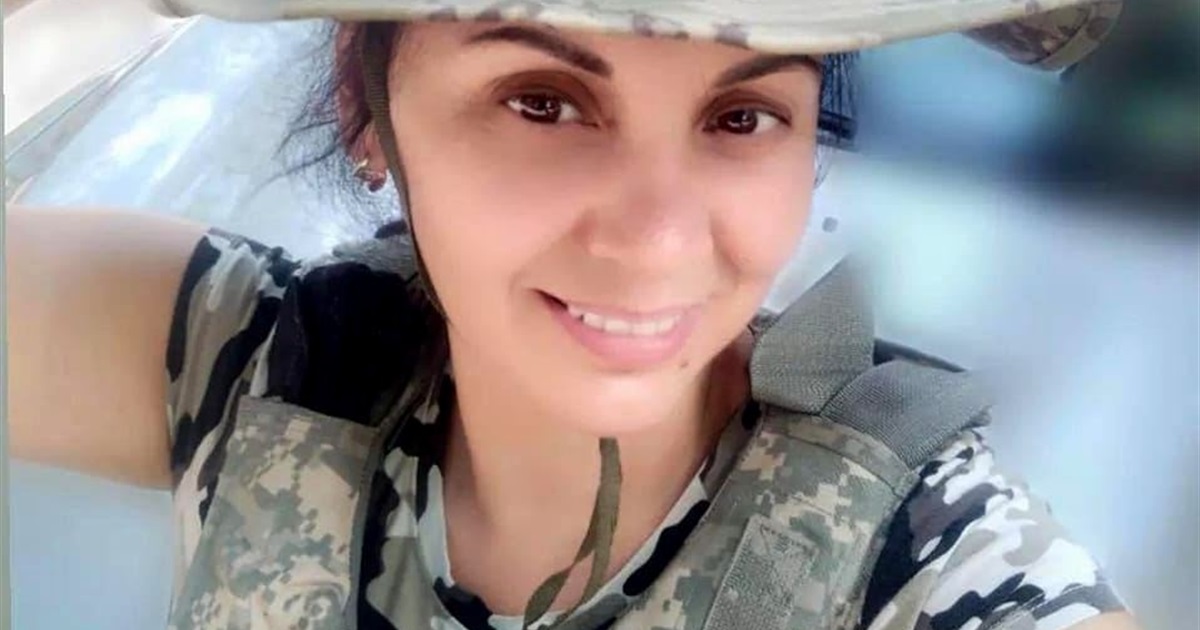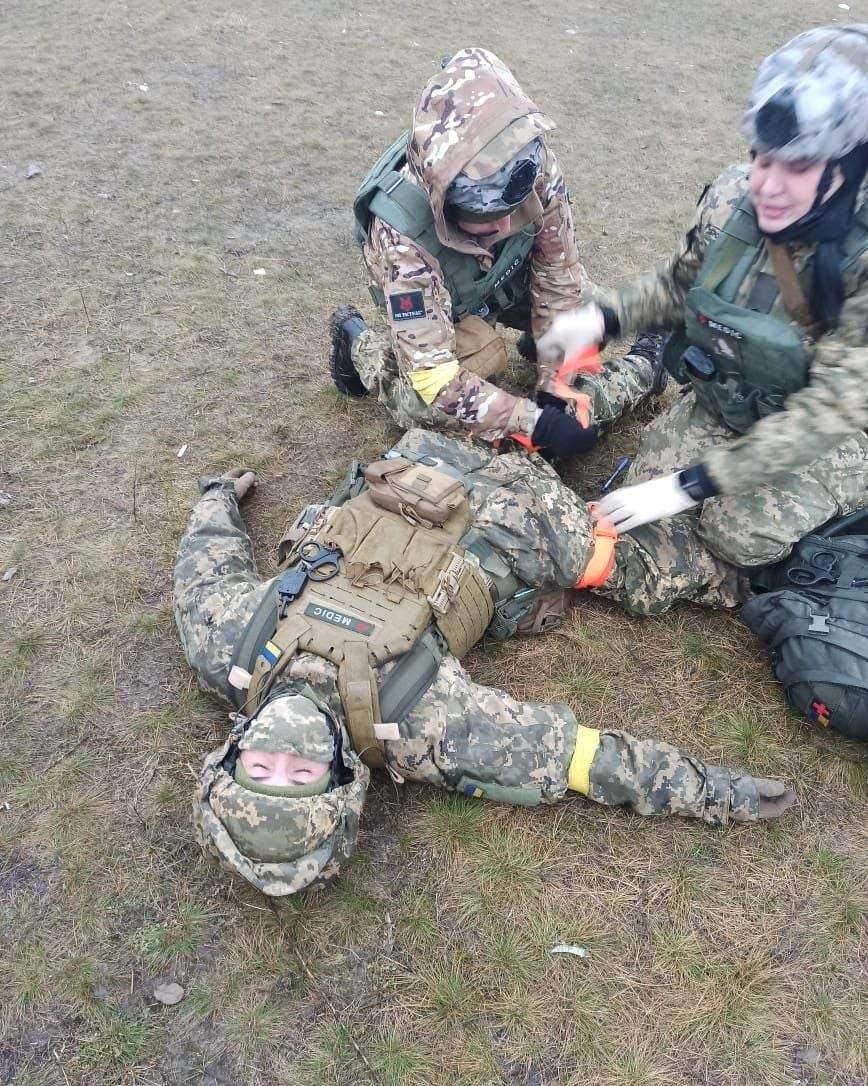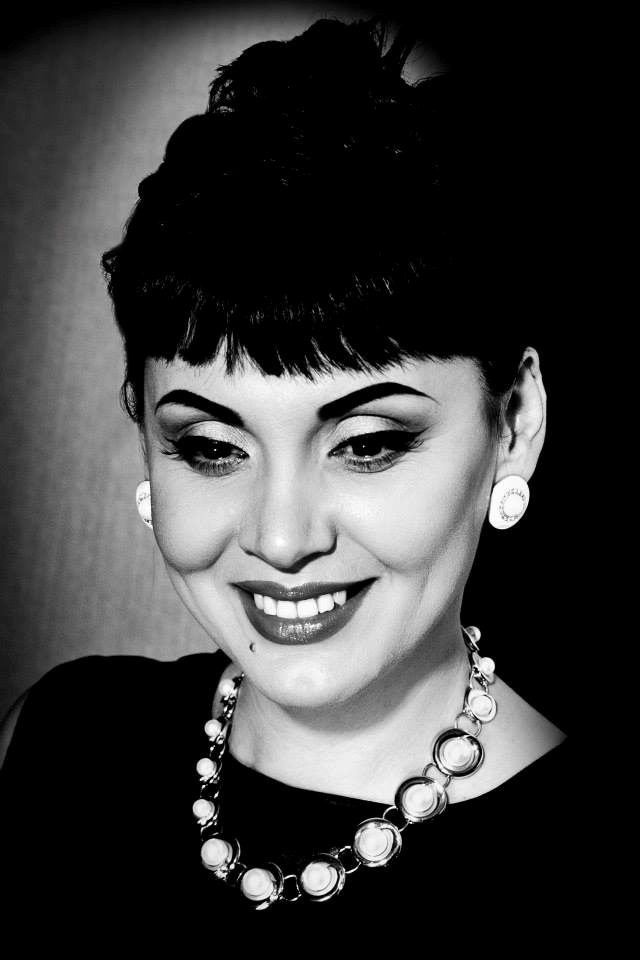Action medic from Nikopol Inna Levinkova: "We are fighting for the future and freedom of our children"
Estimated reading time: 7 minutes
'We were based in Nikopol almost until September and then we were transferred to the South of Ukraine.'

Action medic from Nikopol Inna Levinkova: "We are fighting for the future and freedom of our children"
Until February 24, 2022, Inna Levinkova, a native of Nikopol, worked as a psychologist in the City Department of Education with children with mental and intellectual retardation, conducted psychotherapeutic practice together with a narcologist, helping people with addiction to continue remission.
For many years, Mrs. Inna was one of the organizers of local beauty contests, where she was also a member of the jury, collected porcelain dolls and tableware, was fond of painting and had her own salon of exclusive women's jewelry "Christie".

Today Ms. Inna serves as a combat medic in the South of Ukraine. The heroine of the interview personally told the journalists of the Nikopol.City editorial office about the motivation to join the ranks of the Armed Forces, responsibility, working conditions and tasks that must be performed every day.
- What motivated you to become a combat medic during the war?
My son Vladyslav and I first volunteered in Nikopol. Later, I saw a post on Facebook by Nikopol volunteer Ihor Radchenko that they were looking for medics. I say to my husband: "I'll go," and he tells me: "You're not going anywhere." We argued for almost 5 days. I have him as a military man, so on February 26 he stood up for the defense of the country.
My sister lives abroad, she persuaded me to leave Ukraine. I refused. I realized that I love my weeds the most. My family has lived in Nikopol for over 250 years! My grandfather built a house, took care of it, fought too. Great-grandfather fought in the First World War, grandmother was a nurse in the Second World War. Why did I have to leave all this and go somewhere? I understood that if I go and take refuge, I will not be able to return for a very long time due to American legislation. And again - I can be useful to Ukraine now. I studied, and secondly, we lived life. And the children? Let them have a better future. We fight for them, for their better future, for the opportunity to independently decide how to live.

I have two other educations – economics and psychology, so when I joined the charity, they asked me what I wanted to be. Although I wrote that I have a master's degree in military psychology, I myself have no military experience. And in medicine - 16 years of pharmacy. I have many doctors in my family, so I am in my element. Moreover, it turned out that there were not enough doctors, and you can't teach him in three minutes, because you need a basic education. You can't learn anatomy even in half a year - it's academic knowledge.
We were based in Nikopol almost until September and then we were transferred to the South of Ukraine.
- What are your duties?
I immediately served as a senior combat medic. The task included medical provision, combat capability provision, personnel training. I had three units and three medics, so they all had to be equipped, have first aid, paramedic, and medical skills. We work according to NATO protocols. It was necessary to train the soldiers so that they could put on a tourniquet, help a comrade, take them out of the battlefield correctly, orientate themselves - where is the medical and where is the pre-medical aid, so that they are fully provided individually.
Then I was transferred to the battalion medical center. Now I work in the evacuation team. We leave by ambulance to a safe zone to predetermined points. A wounded person is brought there, whom we pick up and deliver to the nearest hospital or to stabilization points.
- What help should a combat medic provide?
First aid is provided on the battlefield. This is stopping critical bleeding by applying a tourniquet. Our doctors and health instructors teach how to apply it correctly. Next, first medical aid: they checked the application of the tourniquet, bleeding, breathing, chest injuries, other injuries and injuries, and provided assistance. They stabilized the wounded, prevented the development of complications and shock, took him to a safe place, reported and transferred him to clinical institutions for the provision of qualified medical care.

The evacuation vehicle is parked for 90 seconds. They immediately loaded it and we left, because there was a great risk of shelling. There is also a golden hour rule. If we evacuate within an hour, 80% of a person's functionality will be restored. If it is more, then inevitable physiological processes occur, and the injured person may not fully recover. So timely delivery depends on the driver. Special thanks to them.
- How does your working day start and end?
We are open 24/7. For example, I came home from work - the alarm sounded for 3 hours - they put on armor, helmets, took machine guns and we sit and wait for them to cancel. Overslept, did not sleep - as needed. In war, there are no weekends, work schedules, or good weather.
I adjust myself to the fact that nothing can be predicted in my work every day. Each day is different from the last. Every day a bunch of new tasks.
- How is your daily life?
The first months were difficult. Then the security got better. There were never any problems with food products, but with military uniforms...everything has to be fitted and hemmed, because the uniforms were not sewn for the girls. By the way, it is easier to walk in breeches than in heels. Later, everything was gradually received: both underwear and winter clothes.
According to statistics, 11% of the armed forces are women. In our battalion, only 2%. Very little and we are in different fields. But we are loved. Volunteers also help: they provide quality clothes and medicines.
I was worried that I don't have special physical training, because I need to move quickly and react. But I pass all standards here: I shoot accurately. We learn cartography, communication. There is no war without communication.
Once there was such a thing that on Sundays they lived and collected rainwater for three girls for their needs.
- How do you hold on in such conditions, what do you find solace in?
There are no infidels in the trenches. I believe in God, I often turn to him. Thank you for the day and please guide me, because we are all different people, it is sometimes difficult.
I find solace in the good. I can read good poems. I have not abandoned my hobby of collecting dolls, so my collection is being replenished. I observe nature. I haven't regretted being here for a single day. My work and knowledge are beneficial.
- You had the opportunity to leave Ukraine, why didn't you take advantage of it? What was the motivation to stay and become a combat medic?
You know, I thought... How will I live if others come? I don't want anyone to change my life, because I lived the way I wanted. Yes, we are in trouble. We know that we do not have an ideal country or an ideal city, but it is we who decide how to live in our country. I live in the house where my grandfather was born, my mother, I was born, my son - why should I leave it to someone else? I grew up here, my family is here. Here is my close circle. I don't want to go anywhere. My soul is here. I want grandchildren to come to my house, great-grandchildren are my family nest. This is what I am defending.




